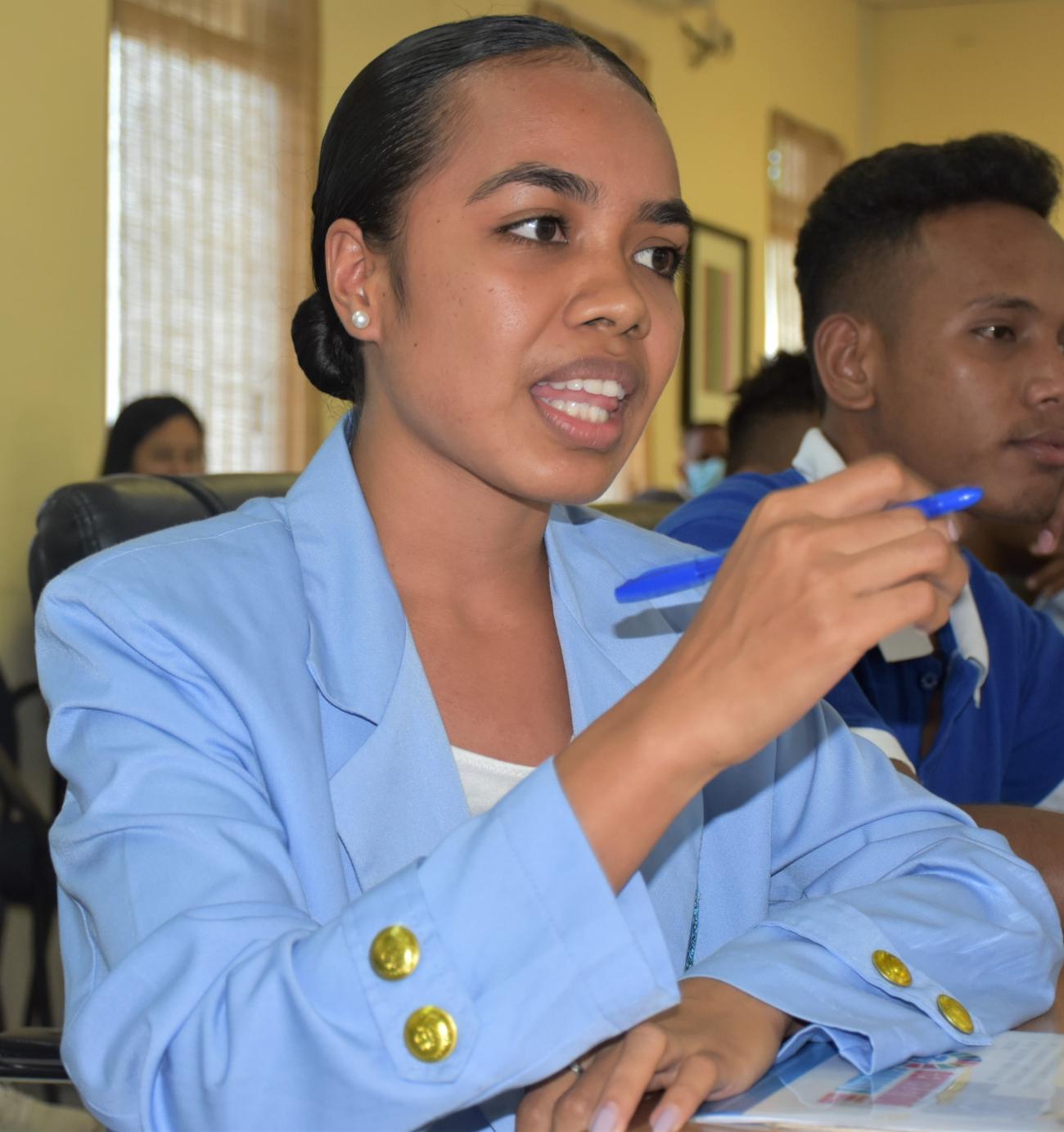Encya Josefina Lobo is a 3rd Year Natural Science student at the National University of Timor-Leste.
She knows that having a safe campus free of sexual harassment and violence is essential for a productive study. After attending UN Women’s Safe Campus Training and receiving Guidelines to a ‘Safe Campus’, she aims to encourage her fellow UNTL students to identify factors contributing to sexual harassment and take action against on campus for women and girls to benefit from a safe campus environment.
“Even outside of campus I experience different forms of discrimination that can contribute to sexual harassment. Sometimes I experience ‘cat calling’ from men in the streets, the way they do it feels like they are being disrespectful and treating us without dignity. This makes me feel insecure when I am walking in the streets. This experience is not different from what we encounter at the university.
In general, the National University of Timor Lorosa’e or our place for education does not have adequate infrastructure to create a secure environment, some places on campus are in poor condition and in need of urgent rehabilitation. There are also some places that can contribute to sexual harassment due to the insecurity of our environment. For instance, the toilet, some of the doors cannot lock and both male and female students share this facility. Another good example is some classes have malfunctioned lights, students working in groups cannot gather later than 6 (after dark) due to the lights not working. Being in a dark environment at night allows people to commit sexual offences easier, because they can flee easily and no one would be able to identify the person.
The Women’s Safety Audit Training conducted by UN Women provides us with the opportunity to identify places we never knew could be of danger to sexual harassment. There is a checklist we can follow to determine and analyze places that are of danger. I am extremely thankful to participate in this training, as I have benefited from identifying environmental factors that can lead to vulnerable situations. Now I can take the initiative to share this experience with people at the university to ensure we report places that are dangerous for us.”
Encya Josfina Lobo is a 20-year-old Ciencias Exatas UNTL student. UN Women spoke with Encya at the Women’s Safety Audit- Safe Campus Training, which aims to identify the infrastructure and environment factors contributing to women’s experience of insecurity at UNTL campuses. Critical to the training is to understand the situation and experiences contributing to sexual harassment on campus to gather data and understand ways to prevent such issues arising for future training. The students are given a guideline on how to conduct their own Women’s Safety Audit and take actions against sexual harassment and violence on campus. The findings will contribute to UN Women’s partnership with the National University and its commitment to creating a Safe Campus, with generous support from KOICA.








